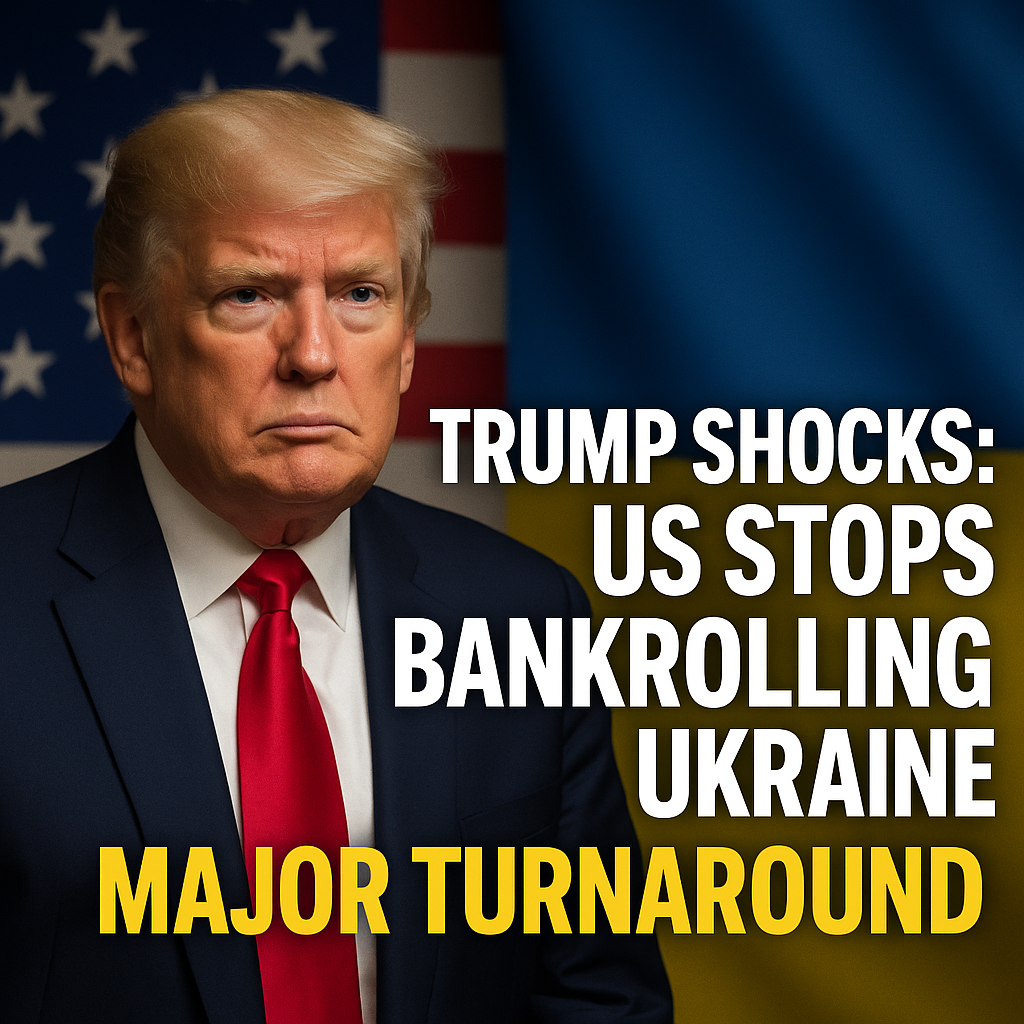Trump Shocks: US Stops Bankrolling Ukraine – Major Turnaround
Trump Shocks: US Stops Bankrolling Ukraine – Major Turnaround
The recent announcement that the U.S. will halt financial support for Ukraine has sent shockwaves through political circles and global relations. This major turnaround marks a pivotal moment in U.S. foreign policy, raising questions about the implications for both Ukraine and the broader geopolitical landscape.
The Shift in Financial Commitment
Historically, U.S. support for Ukraine has been robust, particularly since the Russian invasion in 2022. Politicians across the aisle have justified this effort by emphasizing the importance of supporting democratic nations against authoritarianism. However, recent developments have seen former President Donald Trump leading a faction within the Republican Party that questions the rationale behind ongoing financial aid to Ukraine.
In a recent speech, Trump articulated a stark warning against excessive spending, framing U.S. aid to Ukraine as detrimental to American taxpayers. He argued that resources should be redirected to address domestic issues, such as infrastructure and healthcare, rather than being funneled into foreign conflicts. Critics argue that this perspective oversimplifies the complexities of international relations and security.
Diverse Perspectives on U.S. Financial Aid
While Trump’s position resonates with a segment of the Republican base, it contradicts the prevailing views of many U.S. lawmakers and analysts. A significant number of Republicans and most Democrats still support financial assistance to Ukraine, underscoring its importance in stabilizing Eastern Europe and combating Russian aggression.
– Supportive Viewpoint: Proponents of continued aid argue that supporting Ukraine is tantamount to securing democratic ideals. They highlight success stories that demonstrate how U.S. funding has strengthened Ukraine’s military capabilities and economic resilience. For example, a report from Al Jazeera noted that U.S. weapons provided to Ukraine have shifted the balance on the battlefield, suggesting that continued support is crucial for any hope of maintaining European stability.
– Opposing Viewpoint: Conversely, critics articulate concerns regarding the transparency and effectiveness of aid distribution. They question whether funds are being utilized efficiently, citing reports from various sources indicating issues ranging from corruption to inefficient military procurement. This skepticism contributes to the growing calls for accountability and oversight in foreign aid spending.
The Broader Implications of Stopping Aid
The decision to cut off financial support could precipitate significant shifts not only in Ukraine’s defense capabilities but also in U.S. relationships with its NATO allies. If the U.S. withdraws support, experts fear a power vacuum may emerge, potentially emboldening Russia further in its aspirations to dominate Eastern Europe.
Moreover, the halting of U.S. aid could strain relations with European partners who have been relying on U.S. leadership in their collective security arrangements. Many European nations have echoed concerns about the likelihood of increased Russian aggression in the absence of American backing. Reports from Sky News emphasize that NATO allies have been anxiously observing U.S. discourse on Ukraine, as its security dynamics heavily influence collective military strategies in Europe.
Navigating Uncertainty
As reactions unfold, it becomes clear that opinions on U.S. financial support for Ukraine vary widely—not just within the political landscape but also among analysts and the public. The evolving situation leads to uncertainty regarding the future course of U.S. policy, especially as the upcoming presidential elections loom.
Trump’s endorsement of reduced aid resonates with those who prioritize domestic over foreign concerns, reflecting a broader debate on the balance of global engagement versus internal responsibilities. However, unpredictability remains a hallmark of international politics, and a definitive conclusion may still be many months away.
At this juncture, it’s imperative to recognize the weight of these discussions and their potential repercussions. As stakeholders evaluate the ramifications of the U.S. potentially stepping back from its commitment to Ukraine, the need for dialogue and diplomatic solutions remains critical. The intricate web of geopolitical interests underscores that the reality of international relations is rarely black and white.
In essence, the decision to cease financial support for Ukraine reflects deeper ideological divides and brings into focus critical discussions about foreign policy priorities moving forward. As various stakeholders navigate this complex terrain, it is clear that both clarity and consensus will be hard to come by.




































